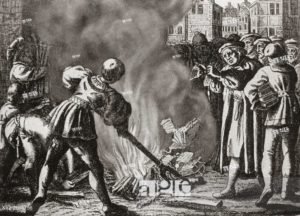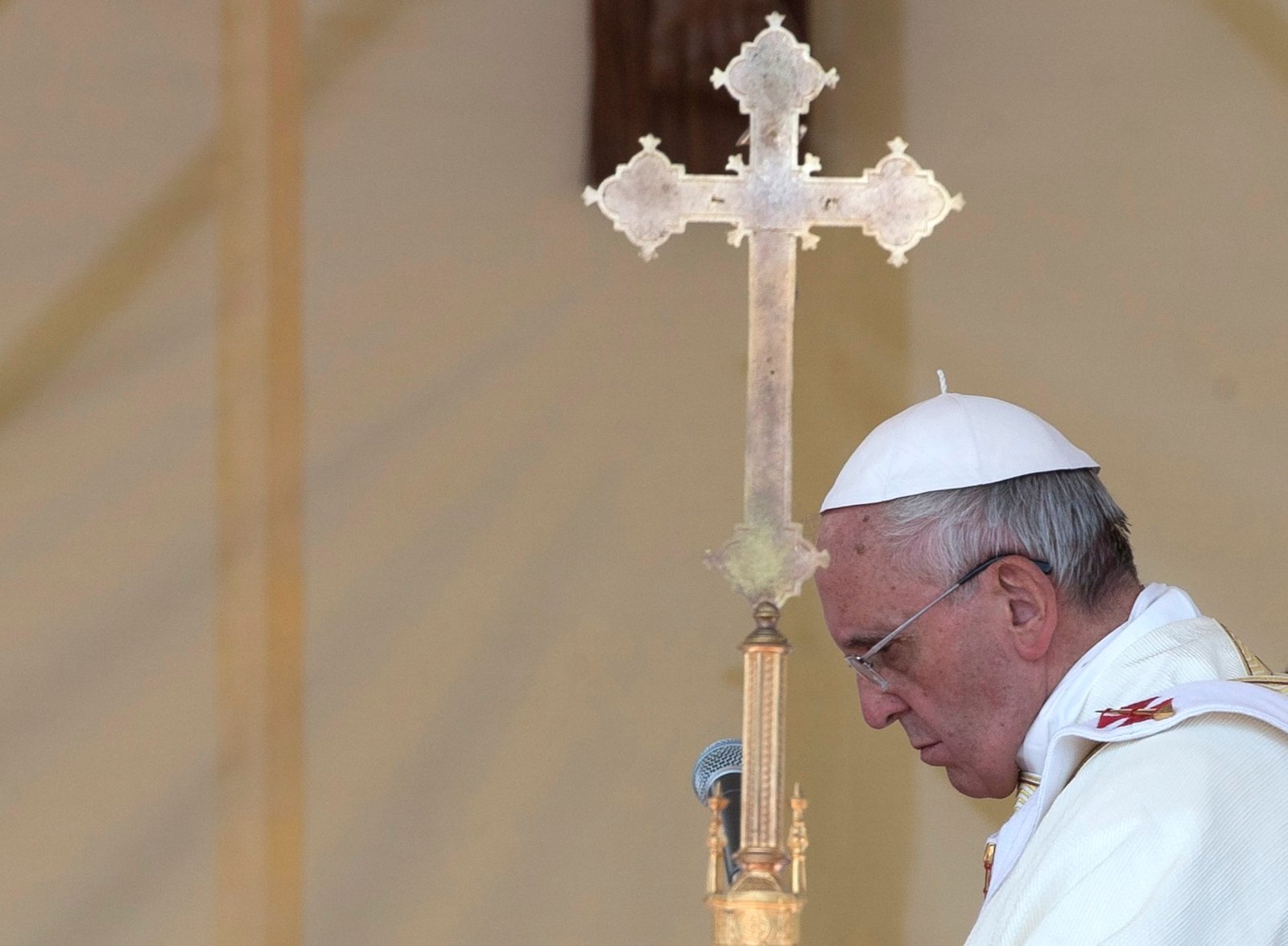WAS THE DOCTRINE OF EXCOMMUNICATION IDEAL?
Excommunication is the formal removal of an individual forms the local church membership and the informed separation from that individual. It is not show that someone is more perfect than the offender, holy than the other, better than the other…, but it is a measure final measure of love to restore a derailing brother and that is why the when excommunication is pronounced on the offender; prayers never ceases for the repentance of the soul.
The doctrine of excommunication is one of those doctrines that form the Landmark of forgiveness. It is the final measure that can be applied by the local church to an unrepentant brother; whose misconduct will cause the name of God and the universal church to be blasphemed. Just as the sin of David with Bathsheba brought a blasphemy by God’s enemies (2 Sam. 12:14), so will the sin of a brother bring about blasphemy on God name by God’s enemies spiritually and physically. To prohibit blasphemy, brethren that have gone through the processes written on the landmark of forgiveness, such a brother will have to face the Landmark measure of excommunication or expel. The local church during Paul’s time also worked with such principle in 1 Corinth. 5:1-13, a brother who has sinned was excommunicated and later restored back after his repentance in 2 Corinth. 2:5-8.
Excommunication is an exclusion from church fellowship as a means of personal discipline or church purification, or both. It has is historic origin from the time of Moses, leading the ancient Israelites.

THE ERA OF LAW
Excommunication could be in the form of:
- A ban – Lev. 27:29
- A “cutting off” usually by death, stony of certain offenders, breakers of the Sabbath – Exo. 31:14, Lev. 17:4, Exo. 30:22-38
- The exclusion of the leprous from the camp – Lev. 13:46, Num. 12:14
- At the restoration, a penalty of disobedience – Ezra 10:7-8
-
THE ERA OF GRACE
The doctrine of excommunication in the New Testament church was not a fully developed system. The New Testament does not clearly define its causes, methods, scope or duration. It seems to have been incurred by heretical teachings (1 Tim.1:20) or by factiousness (Titus 3:10); but the most of the clear undoubted cases in the New Testament are for immoral or un-Christian conduct (1 Corinth. 5:1, 11, 13; perhaps also 1 Tim.1:20). In the New Testament, excommunication separates the offender from church fellowship but not necessarily from the love and care of the church (2 Thess. 3:15).
You may also be interested in Why Must I forgive? Impulse Offence CHURCH/CHRISTOLOGICAL FAMILY
During the era of Jesus, excommunication was used against those who confess Jesus.
Read: Jn. 9:22, Jn. 16:2, Lk. 6:22 In Luke 6:22, Jesus may refer to the three stages:
- Separate you from their company
- Reproach you
- Cast out your name as evil.
According to Mat. 18:15-19, one cannot conclusively say that an express prescription of excommunication is found in Jesus words. In the verses 15-17 of the Matthew, the offense and the penalty also seem purely personal. Because, what may get you offended might not really get me offended but for every offense, we should control and manage it according to the standard laid by Jesus. According verse 18-19, the local church can as well, asks the Lord, to lose the brother from his obstinate attitude and it will be done in no distance time. This might imply that the church also need to act, so that even after excommunication, prayers are still be made for the survival, godly sorrow and repentance of the offender.

Mat. 18: 15-19, Jesus seems to be laying down the principle of dignified personal avoidance of the unrepentant offender, rather than prescribing ecclesiastical action or measure. We are to follow the principles of policies laid down for His church, before involving any kind of ecclesiastical enactments.
IMPORTANCE OF THE DOCTRINE OF EXCOMMUNICATION
- It defines the orderliness of the church to the brethren and witnesses of the church that are probably not Christians.
- It promotes the testimony of Jesus Christ (and His church) before the unbelievers.
- It is a medium that delivers the unrepentant sinner “our to Satan, so that the sinful nature may be destroyed and his spirit saved on the imply, that excommunication can somehow involve God’s using Satan (or demon) as a disciplinary to work in the sinner’s life physically to bring about true repentance in the heart of the sinners
Hopefully, the disciplinary measure of the local church is armed at successfully bringing about godly sorrow and true repentance. When this aim is attained, the individual (brother) can be restored to fellowship.
It is quite unfortunate that only few brethren that are really victims of the canorous act will show godly sorrow and repent when excommunicated or expelled. It is quite unfortunate that disciplinary measure, even when administered we love and in the correct manners, is not always successful in bringing such restoration. One truth that should be noted is that the local church must not remove the ancient landmark that contains the doctrine of excommunication, even if it is not always successful in bringing about such restoration.
- Excommunication is one of the measures of discipline commanded by Jesus Christ for the local church to use. When a child is not disciplined and he is allowed to do as he please; it dooms the child to a dismal future – a future with pains of continuous tears.
You may be interested in What Is Love? Is Divorce Really a Sin? Investing Your Treasure
The complete book on the marriage (Marriage X-ray) here
Any parent with such non-disciplinary attitude toward such a child is not showing love but hate to the child. Similarly, discipline in the church, while never pleasing or easy, is not only necessary, but loving as well.
IMPORTANT THINGS TO NOTE ABOUT THE DOCTRINE OF EXCOMMUNICATION
- The local church is not to excommunicate any brother involved in cancerous act (sin), without first taking him into repentant and salvation. That brother is the lost sheep out of the one hundred. You don’t excommunicate a lost brother, who is ignorant of his new state of life. He is lost, bring him back on the right path. Except he is not willing to repent, then, he can be treated as an heathen
Question: What if the cancerous attitude of the brother has produced a visible remit. Should the local church still restore him back by talking to him or excommunicate him without any first meeting?
Answer: Whatever state or magnitude is the sin (cancerous attitude). Jesus has laid the landmark. The primary godly aim of the local church is to restore that brother. At this point some eldership of the local church can relieve the victim of his ministerial duties and that must be done in love. Been relieved of his duties does not annul his membership. Gal. 6:1, Eph. 4:15.
Grace is far difficult from the law. Grace gives you many open doors to repentance, the law only has on door. Once it closes, you are out but far Grace, of one door closes, another opens for repentance. John 8:1-11.
- Jesus did not say that the individual brother should excommunicate the offender of or perpetrator of such cancerous sin. Do not develop any malicing attitude towards such a brother.
Note: many Christians feel that malice is when you stop greeting someone that offended you malice is simply a feeling you develop against that brother to see him suffer. Greeting is a habit of morality and immorality. Some people do not have the habit of greeting, yet they are better morally than some people who sing greetings. Some people are very good at greeting but in their heart malice is their DNA. Ignorantly, some people use the act of not greeting you as a way of informing you of the offence you created but that is not the way Jesus commanded.
We should greet others, if that is our attitude and to the brethren that do not know how to greet, should learn something new today, that greeting is a prophecy from the month of a believer. If I tell you “good morning sir” it means I just prophesied that your morning should be good.
One person cannot make the church, it must e a collection of service people; therefore one person cannot excommunicate a brother. Excommunication is a religious practice designed to be applied by a group, organization, society, family or the church.

So, if a brother is excommunicated from a group or religious body or the local church, it does not imply that the brother should not be greeted or helped when in need by other brethren. Excommunication only takes away the right of membership of that brother from that local church. If the brother goes though godly sorrow and repents; he can decide to be a member of another local church but most importantly, it will be of good morals, If he clears himself peacefully with the other local church before leaving to another. It is also true that some excommunicated brethren might not even go through godly sorrow and repentance before joining other local churches, since we now have so many and soon the same brother will be made a leading minister in the new leading church.-
WORD FOR LOCAL CHURCH LEADERS
Find out the previous worship life of a brother, know or have a talk with his previous leading minister(s). If the previous leading minister is truly a minster if God, through God’s leadings, he might tell you some things that might help you work with the brother, restore him back to the faith, provided answers to his worries etc and also listen to the brother’s point of view. Unfortunately, greed and cares of the world will not make a lot of local church leaders go through this process; especially if the brother is a staff in one multinational company or is really wealthy. This implies that the Tithe, offering and other financial supports from such a brother will be magnificent, so who cares about his latest previous local church that he left.
CASES THAT COULD LEAD TO EXCOMMUNICATION IN THE NEW TESTAMENT
- 2 Thess. 3:4
- Titus 3:10
- 2 Jn 1:10
- 1 Corinth. 16:22
- Romans 9:3
- 1:8, Gal. 1:9
Other examples
- Acts 8:20
- Acts 13:11
- Acts 5:5
- 1 Timothy 1:20
- 3 Jn 1:9-10
Recall: The primary aim of excommunication is to amend the ways of the offender, and bring him back to the right path. Excommunication is the result of faithful love, our which hope and prayer still hovered.
WRONG APPROACH TO THE DOCTRINE OF EXCOMMUNICATION
We should not forget that a righteous brother can still be excommunicated by the local church, out of ignorance or that feels that the brother heretical. For instance, tithe payment, used as a standard of salvation and entering into His kingdom. A local church can excommunicate a brother who teaches against this.
We can understand better, that even if the church excommunicates a brother for teaching the gospel truth, God will not support that.
WHO IS TO MAKE THE PRONOUNCEMENT?
It might possibly be pronounced by an apostle (elder or leader of the eldership) alone (1 Tim. 1:20), but perhaps not without the concurrence and as the mouthpiece of the church.
Its purpose was the amendment of the offender. “That the spirit may be saved in the day of the Lord Jesus” (1 Corinth. 5:5) and the preservative purification of the church: “Purge out the old heaven, that ye may be a new lump, even as ye are unleavened” (1 Corinth. 5:7).
CAN EXCOMMUNICATION BE TERMINATED?
It might, as appears, be terminated by repentance and restoration (2 Corinth. 2:5-11).
The church should show them(offender) spiritual care and if necessary, physical care – 2 Thess. 3:15
Visit our Music Website here Her Ebullient Music
Register your child here Hu-Perfectre Educational Foundation
Get the Best Hosting experience at Hostinger.com

The doctrine of excommunication is a must know for the church.
what can you say about the doctrine of excommunication?












